The student who fled Ukraine
Anna Monastyrova is a Ukrainian refugee from the southern city of Odesa, now in Amsterdam. She says she will never be completely safe from Russia.
Anna Monastyrova has lived in Odesa, Ukraine for her entire life, up until she fled from her hometown on February 24th. At 4am that morning, Russian troops breached the Ukrainian border, beginning a lengthy war described by the Kremlin as a ‘special military operation’. It took her a week of travelling by car and train to reach her destination: Amsterdam.
Although there’s currently no war activity going on in Odesa, the 21-year-old feels very fortunate to have left Ukraine so soon after the war broke out: ‘We're really lucky to have my dad leave the country because we left on the first day and hours later they issued a law that does not allow men from 18 to 60 to leave Ukraine.’
Anna has family in Amsterdam and admits coming here was the most logical thing to do from the very beginning: ‘I think that's what everybody is doing right now: they are fleeing to those countries where they have even some sort of connection. They won't be able to host us and help us for a very long time, but it's still a start – it's still people who know the language, who might be able to help us figure out the basics.’
The journalism student who is now in her final year of studies hopes to be starting her life over in Amsterdam – get a job, move in with her boyfriend currently in Montenegro, ‘and maybe even learn Dutch,’ she smirks.
Despite this, Anna is optimistic and poised about the current reality and what the future holds, and so are her friends and family that stayed in Odesa. Even though the place looks like a ghost town, people still go about their day as usual.
‘All of the streets are almost empty because it's not leisure time when everybody's going out to the sea or to the café, so everybody has been mostly trying to stay at home and only going out for the necessary things. But other than that, Ukrainians have been encouraged to go work if they can. Yes, we are in a state of war but it's going to be even worse if the economy stops completely. In the districts of Ukraine where there's no warfare activities going on, everybody is encouraged to work,’ she says.
Annexation of Crimea, 2014
And Anna believes the new government has something to do with this newfound resilience of the Ukrainian people. ‘The ministers are very adequate, capable people and that’s a great bonus. Even if we have some occupied territories by Russia since 2014, from that point, Ukraine was able to grow and move forward. Ukraine has changed a lot and has been progressing into a true democracy.’
In 2014 however, things looked differently with Viktor Yanukovych as the President of Ukraine. Towards the end of 2013 and beginning of 2014, a wave of protests erupted amongst the Ukrainian people, which eventually led to the Maidan Revolution in February 2014. The starting point of this was Yanukovych refusing to sign the European Union association for Ukraine, which led people to rebel against him. When the protests became too violent and dangerous for him, Yanukovych escaped to Russia and the government was overthrown.
Anna recalls that at the time, there were two possibilities for Ukraine: it was the possibility of a union with Belarus and Russia – ‘with Russia advocating very hard for it’, or for Ukraine to move into the European Union.
‘Naturally, the people could see the difference in living in those two blocks of countries; so, when the president declined signing the document, a lot of students rebelled, and he was forced to flee to Russia. And after that, Russia began the attack. And I still remember that many people at that time were still pro-Russia; we were divided in half. My family understood very early on what was going on, but some people even in my class were very pro-Russia and saying that the European Union is not where we're going to find happiness. Of course, a lot has shifted since then and now there are only dozens of people who support Russia, and they were mostly bought by Russia or influenced by Russian propaganda.’
And looking back at the annexation of Crimea, Anna recollects how Ukraine was in great relations with Russia – mostly because of Russian propaganda and because they ‘spoke the same language, shared the same culture. They were viewed by us, and probably they viewed us, as the brotherly nation. But still, that hasn't stopped them from just walking into our territory. So, they just took it and they claimed it as victory because nobody was going to shoot them.’
The cultural similarities between Ukraine and Russia were also what made the rupture between the people so abrupt. According to Anna, it’s complicated to talk about the Ukrainian people being completely ‘anti-Russia,’ as she looks back on the generational conflict happening even within her close family:
‘My grandmother is very influenced by Russian culture. She was raised on Soviet movies, on Soviet songs and not a lot of Ukrainian things and she's now too old to learn Ukrainian and integrate herself back into that culture. Because of that, she watched a lot of Russian TV channels like Russian Culture. And they do it very cleverly because in the advertisement pause, they have the news. So, whether you want it or not, you will be watching the Russian news. And she was denying that of course, saying she was only watching the movies, the TV programmes, the talk shows. There have been times when I walked in on her and saw news on her TV screen. Even though she denies it, they do it that way, so that their main propaganda is in the news.’
Anna sees the direct impact of propaganda on her father’s father, who is in Russia and has lived there for most of his life. ‘When we get on a phone call with him and we tell him that they dropped several bombs on Odesa today, he's like “oh, who did?” and even after we convince him it was the Russians, he tries to justify it, saying they must have had their reasons.’
Western media in Ukraine
As a journalism student and a Ukrainian refugee, Anna is particularly passionate about media impartiality and accountability, which is also why she takes a stand when it comes to Western media and their conflict-sensitive reporting in her home country.
‘I do have several issues with their reporters coming to Ukraine; the government said that you should not film any hits, any places where the bombs fall – and there a lot of reporters, even from the biggest media, that are still doing that. Yes, you get a very nice picture out of it: clouds of smoke and buildings tore apart, but it helps the Russians who are watching the media understand how well their calibrating machines work.’
She goes on referring to a Dutch journalist called Robert Dulmers expelled from Ukraine after posting a photo of a rocket impact on Odesa on Twitter. Although the 56-year-old had official military permission, no journalist is allowed to film or take photographs of a hit right after it happened. Dulmers’ Twitter account was deleted, and with it, his post, but the tweet still received massive backlash from the Ukrainian community.
Anna adds that this is just one of the frustrations she has when it comes to the external elements of the war, ‘Many countries have been a disappointment – Hungary and Israel, which is very surprising considering that Russians have damaged many monuments for the Jewish people killed by the Nazi in the second world war in Ukraine. Many Ukrainians feel like if somebody were to understand the genocide happening now, it would be the Israeli people. But that's not happening, and they're still like very lacking in support.’
Currently in Amsterdam, Anna is (unofficially) enrolled in a journalism minor alongside remotely attending lectures and writing her thesis for her course in Ukraine. Although she feels welcome in the capital city of the Netherlands, she admits there are some cultural barriers that she needs to make sense of. However, going back to Ukraine is not an option, at least for the foreseeable future. ‘I’m in the process of figuring everything out right now, but I don’t feel too bad. You know, life goes on and I will have to figure it out whether I want it or not, because with Russia, you can never be completely safe.’



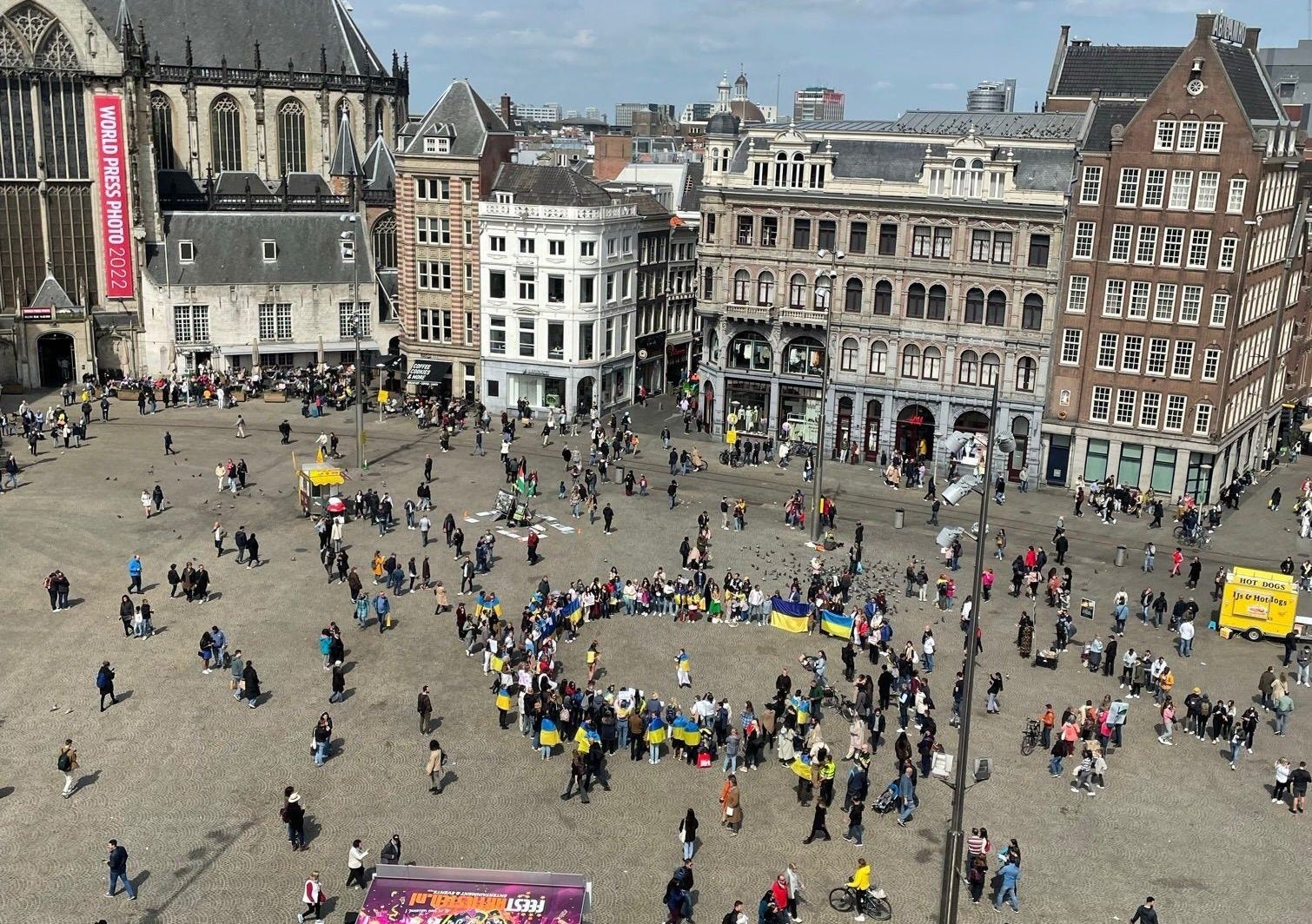
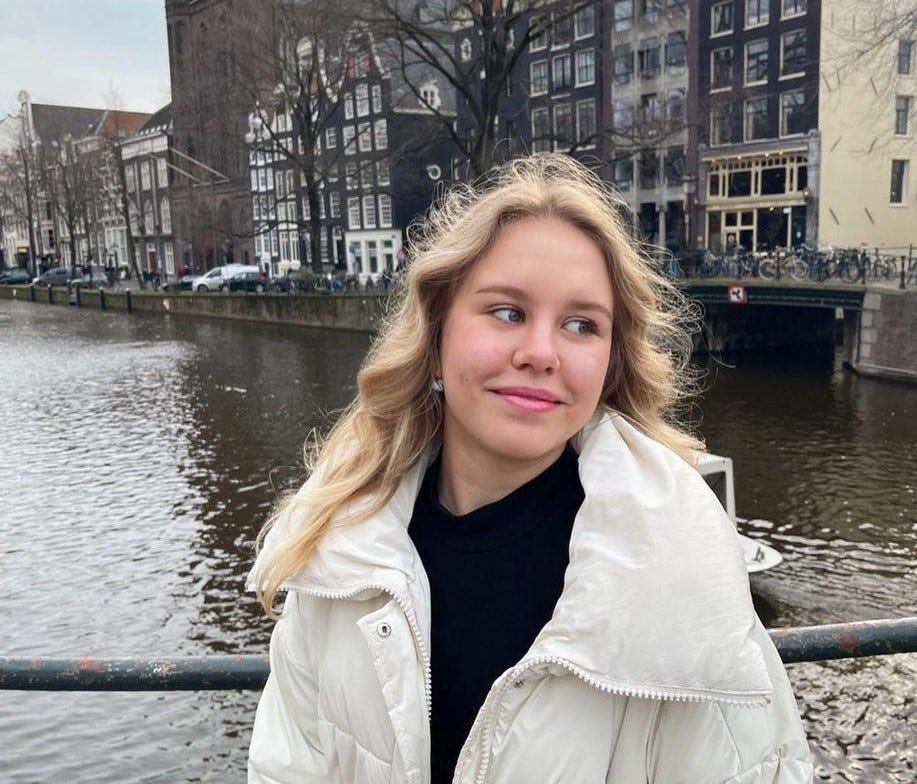
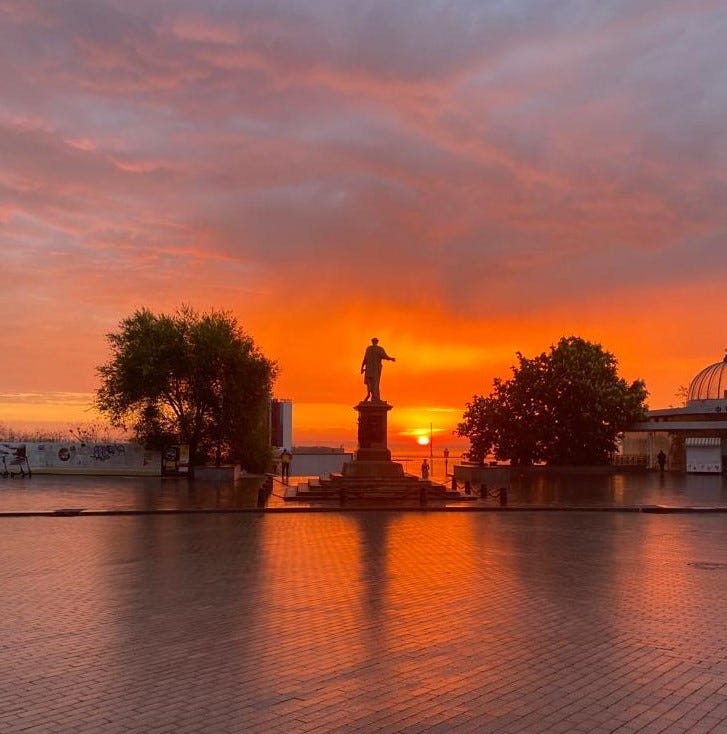
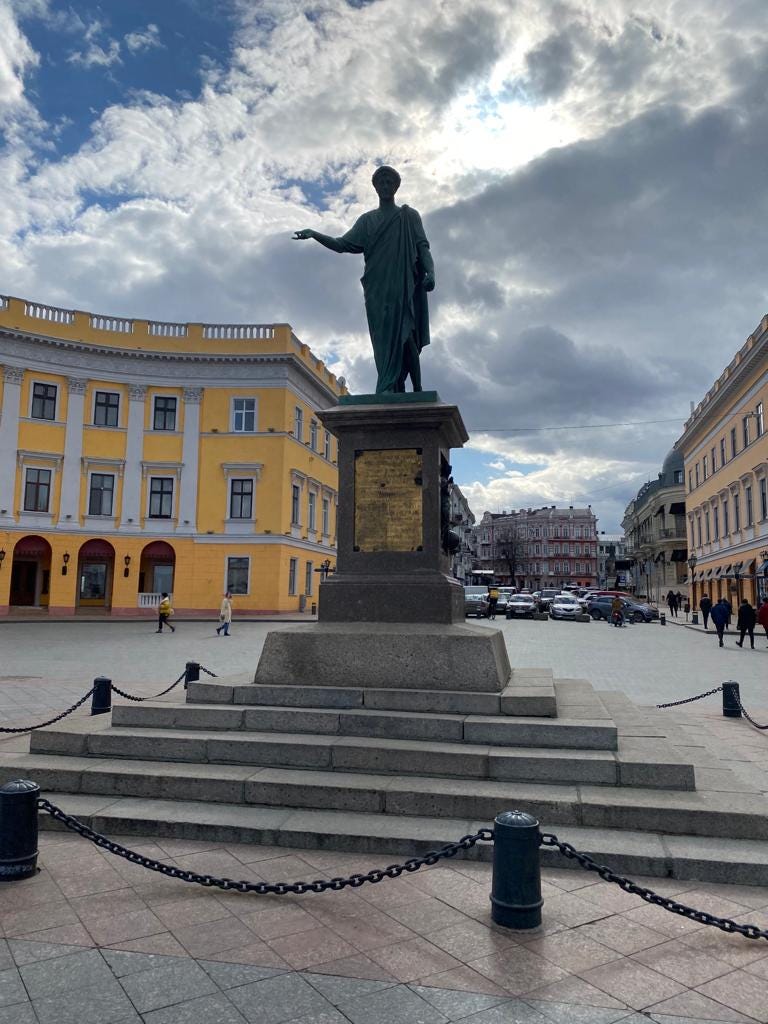
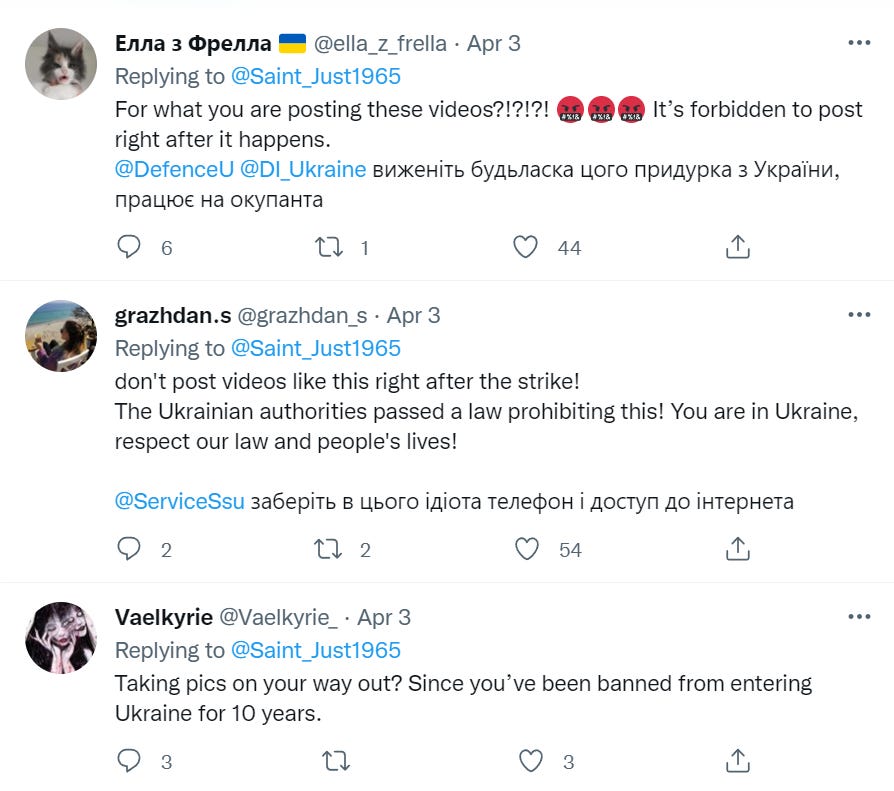
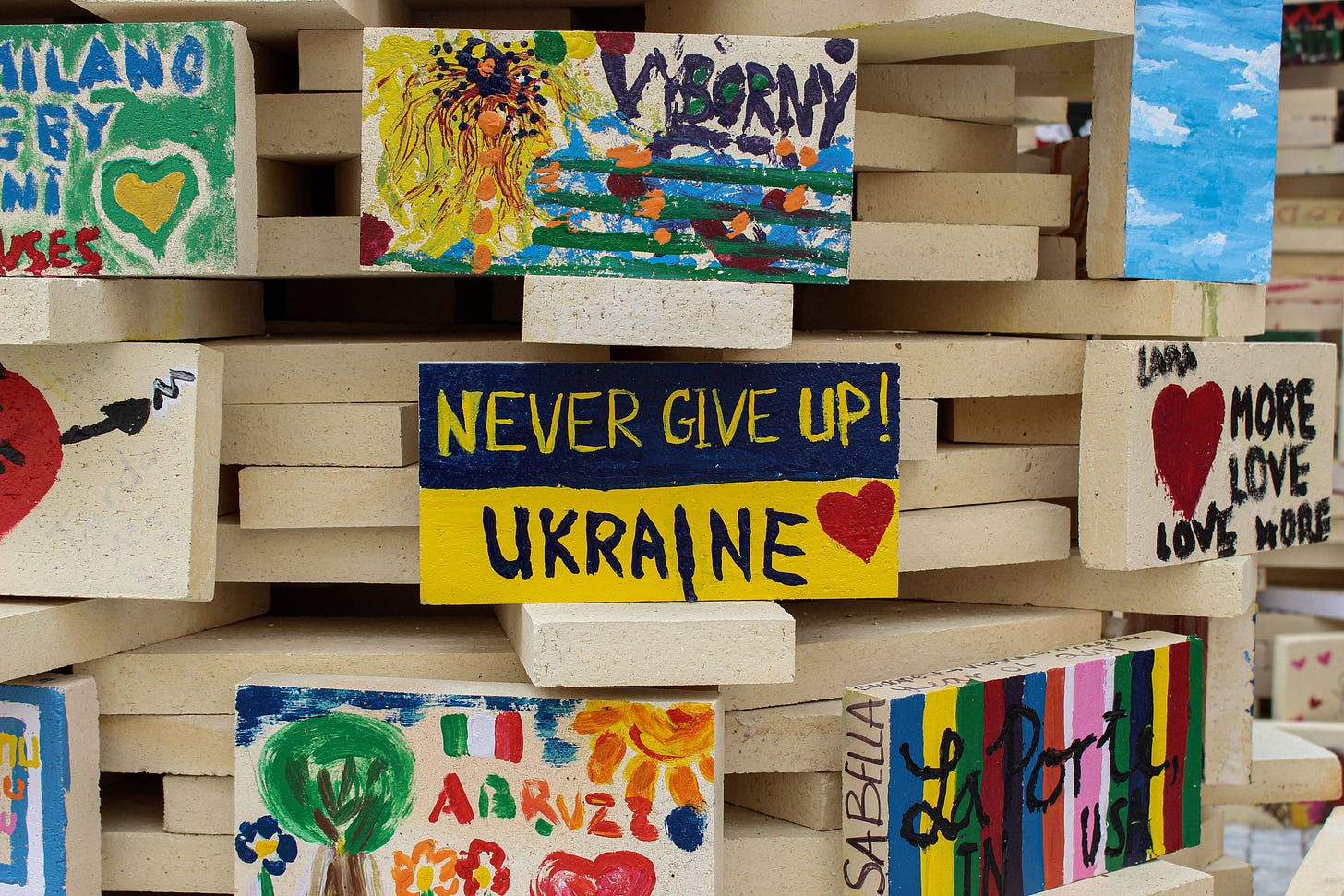
Thanks, a great article!